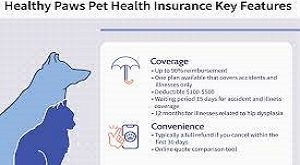Introduction:
Insurance is a financial safety net that provides protection and peace of mind in the face of unexpected events. Whether it’s safeguarding your health, property, or finances, the right insurance coverage can make a significant difference in times of need. However, understanding the intricacies of insurance and making informed decisions about coverage can be a daunting task. In this comprehensive guide, we’ll explore the various aspects of how to make insurance work for you, from choosing the right policies to maximizing their benefits.
- Assessing Your Needs:
The first step in making insurance work for you is a thorough assessment of your needs. Different stages of life come with distinct requirements, and tailoring your insurance portfolio to align with those needs is crucial. Consider the following areas:
a. Health Insurance: Evaluate your medical needs, considering factors such as age, pre-existing conditions, and lifestyle. Choose a health insurance plan that provides adequate coverage for routine check-ups, emergencies, and potential long-term medical care.
b. Life Insurance: Assess your financial responsibilities and dependents. Life insurance provides financial protection for your loved ones in the event of your death. Determine the appropriate coverage amount based on your family’s needs, outstanding debts, and future financial goals.
c. Property Insurance: For homeowners or renters, property insurance is essential. Evaluate the value of your belongings and the replacement cost of your property. Choose coverage that protects against natural disasters, theft, or accidents.
d. Auto Insurance: Consider your driving habits, the value of your vehicle, and the level of coverage required by your state. Auto insurance can protect you from financial losses in the event of an accident or theft.
e. Income Protection: Disability insurance and income protection policies ensure financial stability in case of illness or injury that prevents you from working. Assess your income and living expenses to determine the appropriate coverage.
- Researching and Comparing Policies:
With a clear understanding of your needs, the next step is to research and compare insurance policies. Different insurance providers offer varying coverage options, rates, and terms. Utilize online resources, customer reviews, and recommendations to identify reputable insurance companies. When comparing policies:
a. Consider Coverage Limits: Assess the coverage limits of each policy. Ensure that the coverage meets your needs without being excessive or insufficient.
b. Evaluate Deductibles: Determine the deductible amounts associated with each policy. A higher deductible often results in lower premiums but may require you to pay more out of pocket in the event of a claim.
c. Review Exclusions and Limitations: Be aware of any exclusions or limitations in the policy. Some policies may not cover certain events or may have specific conditions for coverage.
d. Understand Premium Costs: Compare premium costs across different providers. Keep in mind that the cheapest option may not always provide the best coverage, so weigh costs against the level of protection offered.
e. Explore Bundle Options: Many insurance providers offer discounts for bundling multiple policies. Consider bundling your home, auto, and other insurance needs to potentially save on overall costs.
- Customizing Your Coverage:
Insurance is not a one-size-fits-all solution. To make insurance work for you, customize your coverage to align with your unique circumstances. Work with your insurance agent to tailor policies based on your specific needs, adjusting coverage levels, deductibles, and additional features. For example:
a. Endorsements and Riders: Explore endorsements or riders that can enhance your coverage. This could include coverage for specific valuables, extended liability protection, or additional benefits not included in standard policies.
b. Policy Add-Ons: Some policies allow for add-ons or supplementary coverage. For instance, you might add roadside assistance to your auto insurance or dental coverage to your health insurance.
c. Reviewing Annually: Life is dynamic, and so are your insurance needs. Conduct an annual review of your policies to ensure they still align with your current circumstances. Update coverage as needed to account for changes in income, family size, or assets.
- Understanding Policy Terms and Conditions:
To make the most of your insurance, it’s essential to thoroughly understand the terms and conditions of each policy. This includes:
a. Coverage Periods: Be aware of the duration of coverage and renewal terms. Some policies may require annual renewals, while others may offer longer-term coverage.
b. Claim Procedures: Familiarize yourself with the process of filing a claim. Understand the documentation required and the steps involved in the claims process. Prompt and accurate claims filing is crucial to receiving timely reimbursement.
c. Policy Exclusions: Pay close attention to any exclusions mentioned in the policy. Exclusions specify events or circumstances that are not covered by the insurance. Understanding these exclusions helps manage expectations and plan for potential gaps in coverage.
d. Grace Periods and Lapse Policies: Know the grace periods for premium payments and the policies regarding lapses in coverage. Timely premium payments are essential to maintaining continuous coverage.
e. Renewal Conditions: Understand the conditions under which your policy may be renewed. Some policies may have renewal criteria based on claims history or changes in risk factors.
- Building a Relationship with Your Insurance Provider:
Establishing a positive and communicative relationship with your insurance provider is key to making insurance work for you. This involves:
a. Regular Communication: Keep your insurance provider informed of any changes in your circumstances that may impact your coverage needs. This includes changes in address, marital status, or the addition of new assets.
b. Reviewing Policies Together: Periodically review your policies with your insurance agent. Discuss any changes in your life or financial situation that may necessitate adjustments to your coverage.
c. Understanding Policy Updates: Stay informed about any updates or changes to your policies. Policy terms and conditions may be modified, and it’s crucial to understand how these changes impact your coverage.
d. Utilizing Resources: Take advantage of resources provided by your insurance provider, such as online tools, customer service, and educational materials. Understanding your policy details empowers you to make informed decisions.
e. Seeking Guidance: If you have questions or concerns, don’t hesitate to seek guidance from your insurance provider. Whether it’s clarifying policy terms or exploring additional coverage options, your insurance agent is a valuable resource.
Conclusion:
Making insurance work for you involves a thoughtful and proactive approach to understanding your needs, researching policies, and building a relationship with your insurance provider. By customizing coverage, staying informed about policy terms, and regularly reviewing your insurance portfolio, you can ensure that you have the protection you need when life takes unexpected turns. Insurance, when approached with diligence and awareness, becomes a powerful tool for securing your financial well-being and providing peace of mind in an unpredictable world.





